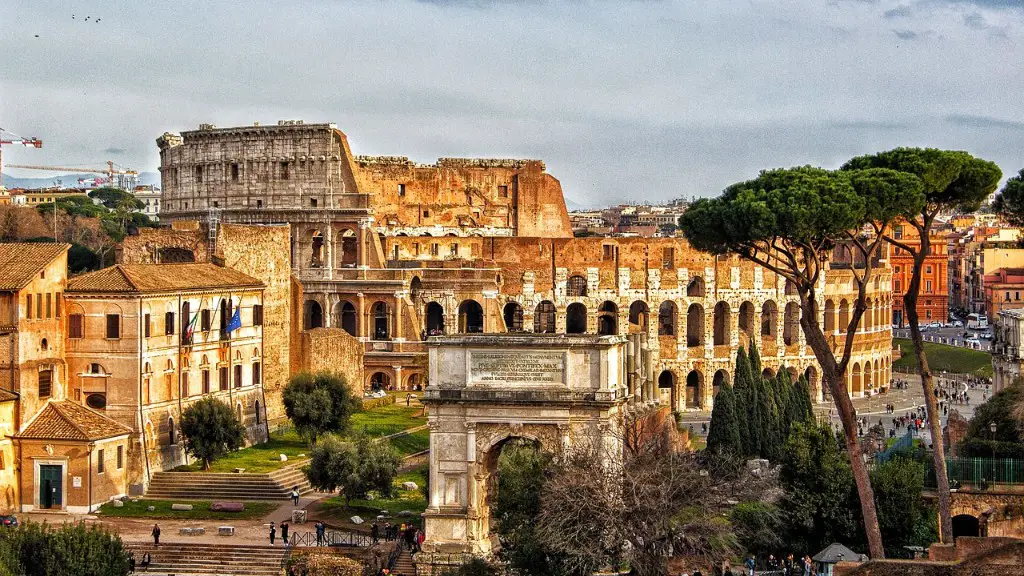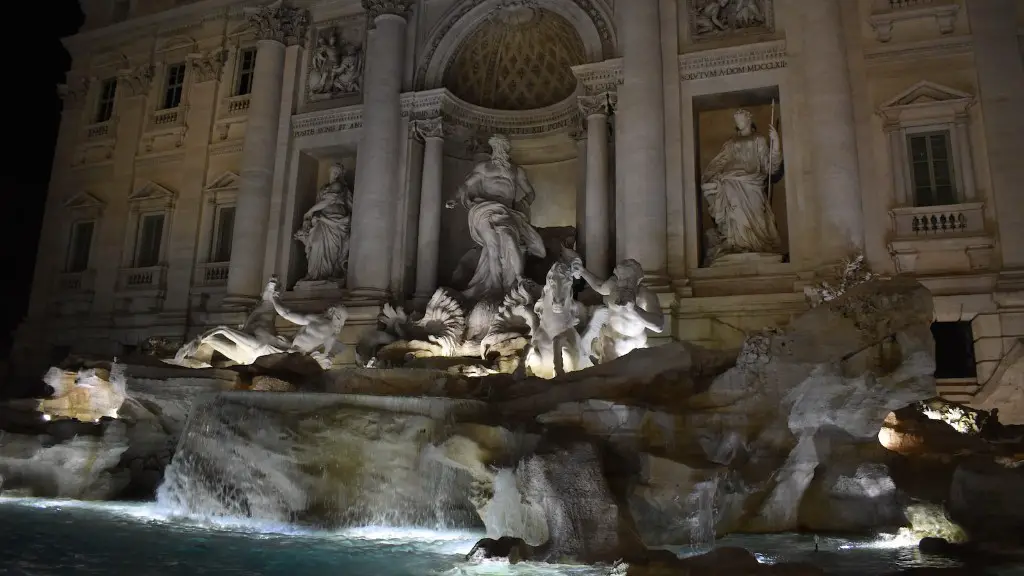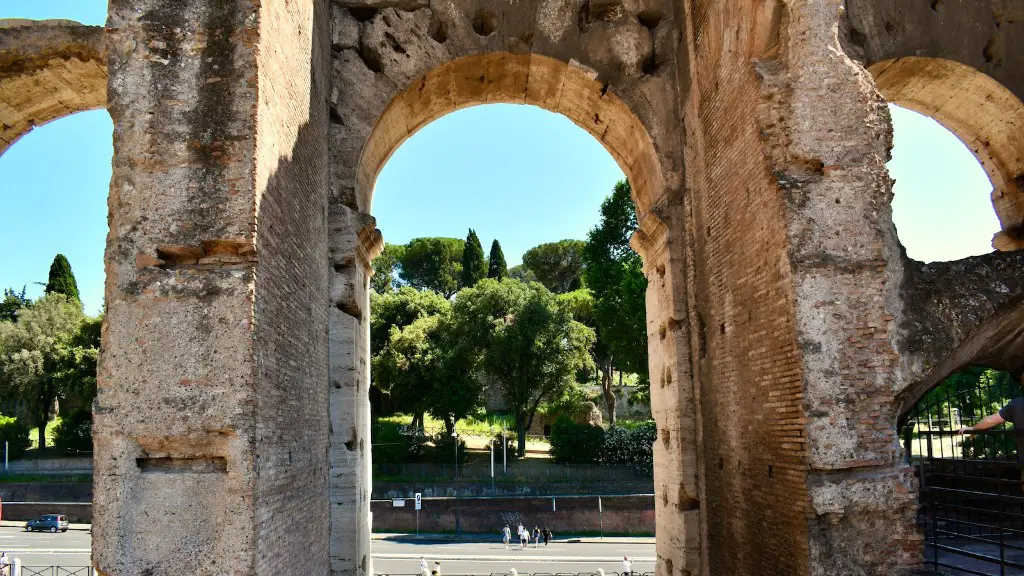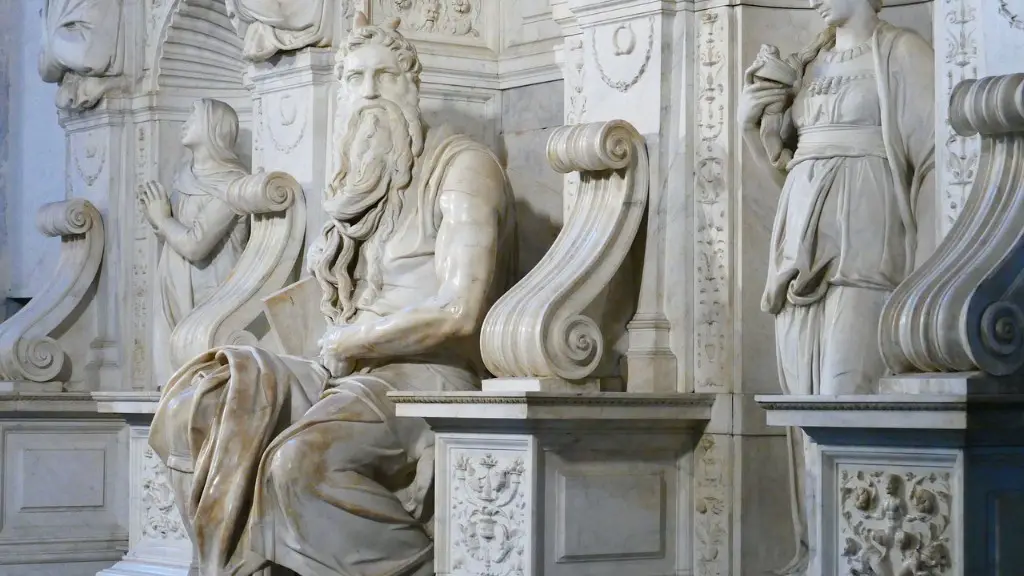The ancient Romans had feasts for a variety of reasons, ranging from religious offerings to social occasions. Feasts weren’t just about having fun and eating good food, as they also served an important role in Roman culture and religion. Feasts could be elaborate and expensive, with the most wealthy Romans having the ability to host the most impressive (and expensive) feasts. Feasts weren’t just about celebrating the Roman gods, however, as they were also held to celebrate military victories, births, and the crowning of new Emperors.
The primary purpose of feasts was to honour the gods and to evoke their blessings. In fact, many of the ancient Roman festivals were held to honour specific gods. Feasts could also be held to commemorate the dead or honour an individual’s accomplishments. It was common for high ranking Romans to host feasts for their friends and clients in order to show their wealth and influence.
Feasts were typically held in private homes, although public festivals were also held in the Roman Forum or on the Palatine Hill. The guests would generally dine on a variety of dishes, but the primary course was usually fish, meat, shellfish, and an array of vegetables. Wine was also served, as were desserts like honey-cakes, fruits, and nuts.
The festivals often involved music, dance, and theatre performances. Games were also often played, such as chariot races. There were some restrictions placed on feasts, such as the banning of gladiatorial contests and the consumption of human flesh, as well as restrictions on how much money could be spent on a single feast. Roman feasts were also generally more subdued than their later medieval counterparts, as drunkenness and lewd behaviour were frowned upon.
Wealthy Romans would often host elaborate feasts, with luxurious tapestries and furniture, and a large number of guests. They could spend incredible amounts of money to ensure that their feasts were the grandest, with lavish decorations and the finest food and wine. Feasts were also important for political purposes, as they allowed powerful Romans to display their influence and prominence.
Feasting was an integral part of Roman culture, and for many it was a way of life. Even today, many cultural festivities are held in a similar way to those held in Ancient Rome. From the reuniting of friends to the grand feasts of the upper classes, feasting was and still is an integral part of Roman culture.
Religious Significance
Feasts were an integral part of Roman religious life, as they were held to honour the Roman gods and goddesses. This was particularly true of the public festivals that were held in the Forum and on the Palatine Hill. They were held to ask the gods for help, give thanks for boons, and to celebrate the gods. Feasts were also held for specific gods, such as for Mars for his victory over the Gauls and for Neptune for his protection of the seas.
Feasts could also be held to honour the dead, as it was believed that the souls of the dead would enjoy feasting in the afterlife. The Romans believed that it was important to hold feasts for their ancestors, as it helped to reinforce the belief in their gods and their religious beliefs. And, of course, religion was often tied to politics, so members of Roman society could gain favour and status by hosting or attending religious feasts.
Political Significance
The Roman system of patronage and clientelism meant that the wealthy and powerful were often able to gain more influence by hosting lavish feasts. These feasts were often seen as a display of wealth and power, as they allowed the wealthy and powerful to show off how much money they had and how many people they could bring together in one place. Feasts such as these were particularly important for those looking to secure political alliances, since it allowed them to show off their wealth and influence to potential allies.
The political and legal system of Rome was also based on patronage, with powerful families and individuals forming powerful political and legal alliances through feasting. Feasts allowed the wealthy and powerful to reward those who helped and supported them, as well as to send signals of alliance and friendship. Feasts were also used to settle differences and disputes, as it was believed that the gods would honour those who feasted together, and thus disputes could be settled through feasting.
Social Significance
Feasts were an important part of Roman society, and they allowed people to come together in a more relaxed setting than the public forums. Feasts were a way for families and friends to come together and enjoy each other’s company. They were also a way for Romans to show off their wealth and influence, since having the ability to host the largest and most expensive feasts was a very prestigious thing in Roman society.
Feasts were also important for the poorer classes, as they allowed them to experience some of the luxuries of the wealthy. Smaller, more modest feasts were held among the poorer classes, as they were still able to enjoy the food, drink, and entertainment provided by the feast despite their lack of wealth.
Functions of Feasting
Feasting played an integral role in the Roman culture, as it allowed people to come together, enjoy good company, and commune with the gods. Feasts were an important part of religious and political life, as they allowed powerful Romans to show off their wealth and influence. Feasts were also important socially, as they allowed people to come together and enjoy good food, drink, and entertainment. Feasting was an important part of Roman life, and its legacy is still felt today.
Legacy of Feasting
The legacy of feasting can still be seen today, as many of our modern festivals and traditions still bear some resemblance to those held in Ancient Rome. From the Mardi Gras celebrations held in New Orleans to Christmas feasts held all over the world, feasting is still a way for people to come together and celebrate. Even today, it’s still possible to observe the influence that Roman feasts had on our modern traditions.
Conclusion
Feasting was an important part of Roman culture, and it still has an influence on our modern world. Feasts were important religiously, politically, and socially, and were often held as a way to honour specific gods, celebrate military victories, and show off one’s wealth and influence. Even today, there are still festivals and traditions that bear some resemblance to feasts held in Ancient Rome, and it’s clear that the legacy of feasting will endure for many years to come.



